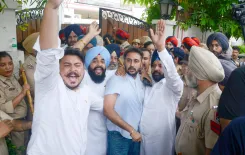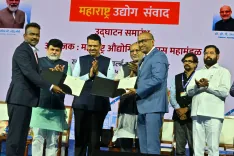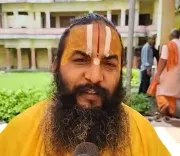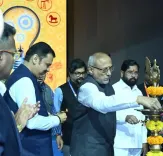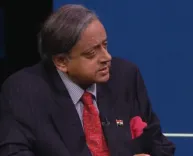Was the Emergency One of the Darkest Phases in India's History?

Synopsis
Key Takeaways
- The Emergency was declared on June 25, 1975, marking a significant constitutional crisis in India.
- It led to the suspension of civil liberties and the imprisonment of opposition leaders.
- Commemoration of the Emergency serves to educate future generations about the dangers of authoritarianism.
- The efforts of brave individuals during this period are honored and remembered.
- Democracy in India remains resilient despite past challenges.
Guwahati, June 25 (NationPress) The Chief Minister of Assam, Himanta Biswa Sarma, remarked on Wednesday that the Emergency represents one of the darkest chapters in India's history.
He stated, "This Emergency was undeniably one of the most troubling periods in our nation's timeline. It is essential for today's youth to understand how our country fell into darkness and how freedom was curtailed during that era, especially during a Mock Parliament dedicated to this critical issue."
In a post on the social media platform X, he noted, "As we commemorate 50 years of this brutal episode, we honor the courageous individuals who stood firm to uphold the Constitution during those oppressive times. Their valiant sacrifices led to the downfall of the Congress party, closing a shameful chapter in our history."
The Bharatiya Janata Party (BJP) is observing June 25 as 'Samvidhan Hatya Diwas' (Constitution Murder Day) nationwide, marking it as a moment of significant institutional failure in India’s democratic journey.
BJP leaders have scheduled extensive outreach initiatives at the booth and district levels with the objective of educating younger generations about the implications of authoritarianism and the significance of maintaining democratic ideals.
Union Defence Minister Rajnath Singh emphasized that 50 years ago, an insidious attempt was made to suffocate Indian democracy through the enforcement of the Emergency, during which civil liberties were suspended and opposition figures were imprisoned under the then Prime Minister Indira Gandhi.
In a post on X, he referred to the Emergency as “the darkest chapter in Indian democracy,” while paying homage to those who stood against authoritarian rule.
"Fifty years ago today, a malevolent attempt was made to strangle Indian democracy via the imposition of the Emergency. The public still remembers it as the most troubling chapter in our democratic history. The way the Constitution was sidelined during the Emergency serves as a glaring example of power misuse and dictatorship. All opposition leaders were imprisoned, and no constitutional institution was spared from misuse. Yet, despite the government’s efforts, the democratic traditions of our country endured," Rajnath Singh stated on X.
Union Minister Singh also acknowledged the contributions of those who fought against the Emergency.
"Today, democracy thrives in India, thanks to those who resisted during the Emergency, faced imprisonment, and endured immense hardships. Future generations will remember their invaluable contributions. Prime Minister Narendra Modi has declared June 25 as 'Samvidhan Hatya Diwas' to ensure every citizen recalls how dictatorship attempts to extinguish democracy," he added.
The Emergency, which was imposed on June 25, 1975, remains one of the most contentious periods in Indian history.
The government justified this action by citing "internal disturbance," but critics argue it was merely an effort to suppress dissent following a court ruling that invalidated Indira Gandhi's election.

